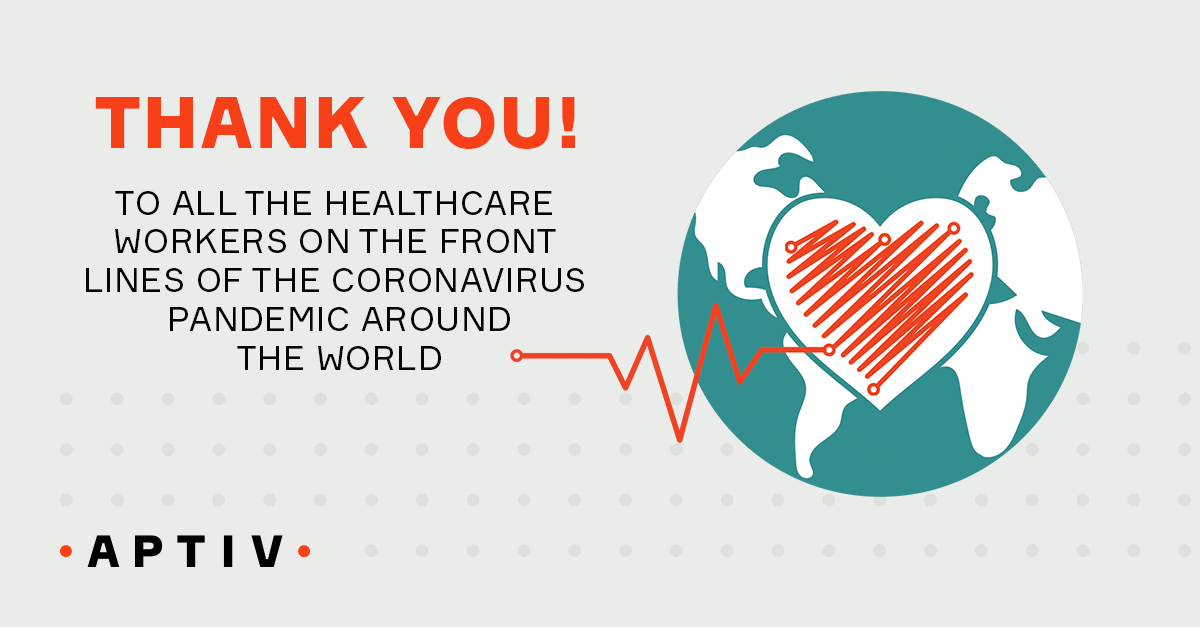At Aptiv, safety is in our DNA. We’re also born to move – though we’re
not doing much of that at the moment. Like most people around the world, we’re following the recommendations of our scientists and governments, which means we’re staying put and keeping our distance. Sometimes, however, getting from point
A to point B isn’t optional. As we venture out to grocery stores, pharmacies or, for some of us, work, moving around safely has taken on a new urgency.
We have all seen the images of doctors, nurses and other healthcare workers at the end of brutal shifts caring for sick patients. First responders – police officers, firefighters and EMS personnel – continuing to respond to emergency calls.
Bus drivers and commercial vehicle operators ensuring that people and products can get where they’re going and allow essential businesses to operate.
These people are heroes. They knowingly put themselves in harm’s way to help keep us safe. We have an obligation to help make their jobs a little easier, if possible. And we can.
The World Health Organization estimates that every year as many as 50 million people are injured or killed in a vehicle-related accident. Who
answers the call when that happens? The same heroes we mentioned earlier. Consider this: a typical car accident might require a response from the fire department, at least one ambulance, and a police officer.
The best thing we can do is stay at home whenever possible. But if we absolutely must go out, we should drive “actively safe” – making a conscious effort to avoid drowsy or distracted driving, exercising caution around vulnerable road
users such as pedestrians and bicyclists, and simply being patient. Driving “actively safe” can lead to fewer emergency calls for first responders, fewer snarled roads for trucks and buses, fewer patients going to hospitals and –
most significantly at the moment – more resources available to fight the pandemic.
For our part at Aptiv, we’re committed to providing a second set of eyes for the driver, helping to provide that extra half-second of warning that can make all the difference. Our active safety systems have helped save thousands of lives and avoid tens of thousands of accidents. We’re committed to democratizing the technology so that these benefits continue to increase exponentially. And when the time is right, Aptiv is ready with comprehensive plans to keep
our employees safe while delivering these lifesaving solutions to our customers. You can read more about Aptiv’s COVID-19 Safe Operations Protocol here.
Whether it’s active safety, or being actively safe, let’s all do what we can to help our heroes stay focused on what’s most important today – beating COVID-19. After all, as our CEO, Kevin Clark said, “We’re all in this together.”
